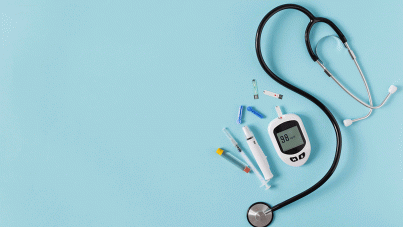Rutgers will conduct the largest and most comprehensive study of children at high risk of developing a life-threatening complication of Type 1 diabetes with funding from JDRF, the leading global Type 1 diabetes research and advocacy organization.
The goal of researchers from the Rutgers Center for Pharmacoepidemiology and Treatment Science (PETS) is to develop a tool to help clinicians identify children who are at high risk of developing diabetic ketoacidosis (DKA), which occurs when the body produces high levels of blood acid called ketones because it can’t produce enough insulin. It is supported by nearly $700,000 in funding from the nonprofit global organization.
“Every year, nearly 27,000 children and younger adults get newly diagnosed with T1D in the US, out of which 30-40 percent of them will present in DKA – a life-threatening, but an entirely avoidable complication of Type 1 diabetes,” said Chintan Dave, an assistant professor with PETS and the principal investigator of the grant-backed project. To read the full story.

